Back in late September we examined for the second time the problems William Weldon, Johnson and Johnson’s JNJ (NYSE) CEO, faced after firm encountered a spate of major over the counter drug recalls. Johnson and Johnson under Weldon’s leadership has not done a great job in handling these problems and for that matter, continues to find itself facing new problems. Just recently one of the firm’s subsidiaries had to recall one of the firm’s over the counter antacid products, Rolaids. Up to this point the board has appeared to support Weldon but we finally  have seen some action in this area. Earlier this week J and J, as reported in the Wall Street Journal, announced some management changes that have increased the battle for Weldon’s succession. According to the Journal,
have seen some action in this area. Earlier this week J and J, as reported in the Wall Street Journal, announced some management changes that have increased the battle for Weldon’s succession. According to the Journal,
J and J, New Brunswick, N.J., named Alex Gorsky, head of the medical devices and diagnostics unit, and Sheri McCoy, who heads the pharmaceutical unit, as vice chairmen of the executive committee and members of the office of the chairman, effective Jan. 3, 2011.
The race to succeed Weldon had previously appeared to be narrowed to Gorsky and McCoy in September when Colleen Goggins said she planned to step down as head of J and J’s third major unit, the consumer healthcare business. The consumer unit has been beleaguered by a series of product recalls due to quality lapses.
Johnson and Johnson must find new ways to get its house in order. Despite good financial results the continuing recall problems could ultimately have a very adverse impact on the firm going forward. Stay tuned as succession plans appear to be moving full steam ahead.

 ge, Kindler, a lawyer by trade with a focus on sales, has found himself under pressure from shareholders and apparently the board. While in charge, Kindler saw a number of research related failures with regard to potential blockbuster drugs and has been in charge as
ge, Kindler, a lawyer by trade with a focus on sales, has found himself under pressure from shareholders and apparently the board. While in charge, Kindler saw a number of research related failures with regard to potential blockbuster drugs and has been in charge as major patented drugs will see their protection expire shortly, e.g., Lipitor.According to the company’s
major patented drugs will see their protection expire shortly, e.g., Lipitor.According to the company’s 
 ompany operates a number of online search services that rely on metasearch technology. InfoSpace primarily serves content providers and a significant portion of its business is focused on the mobile space. Just recently, the company released its earnings for the third quarter which was disappointing and held an earnings call (
ompany operates a number of online search services that rely on metasearch technology. InfoSpace primarily serves content providers and a significant portion of its business is focused on the mobile space. Just recently, the company released its earnings for the third quarter which was disappointing and held an earnings call (



 ker was not very successful while CEO at SAP he faced a great deal of opposition within the organization and more than likely learned what he would need to do to be successful a second time around. SAP’s culture did not fit his needs for change. He should be able to make more change at HP than he was able to accomplish at SAP.
ker was not very successful while CEO at SAP he faced a great deal of opposition within the organization and more than likely learned what he would need to do to be successful a second time around. SAP’s culture did not fit his needs for change. He should be able to make more change at HP than he was able to accomplish at SAP.
 blems, J and J overall has continued to remain very profitable but J and J more than most drug firms has relied on its reputation as a means for success all these years. Investors and analysts are beginning to question whether Weldon’s response to the problems were adequate. More importantly whether he managed the crisis sufficiently to protect the firm’s reputation. According to piece by Johanna Bennett in Barron’s Blog entitled
blems, J and J overall has continued to remain very profitable but J and J more than most drug firms has relied on its reputation as a means for success all these years. Investors and analysts are beginning to question whether Weldon’s response to the problems were adequate. More importantly whether he managed the crisis sufficiently to protect the firm’s reputation. According to piece by Johanna Bennett in Barron’s Blog entitled 




 firm failed to meet analysts expectations in it second quarter results. The firm has also found itself missing FDA quality standards on some its products. Back in June the company received a warning letter from FDA regarding the marketing of one its products. The combination of all these factors appears to have been what made for the resignation. Beckman Coulter’s stock took a hit a few months back and so far nothing has happened to make for the stock’s revival.
firm failed to meet analysts expectations in it second quarter results. The firm has also found itself missing FDA quality standards on some its products. Back in June the company received a warning letter from FDA regarding the marketing of one its products. The combination of all these factors appears to have been what made for the resignation. Beckman Coulter’s stock took a hit a few months back and so far nothing has happened to make for the stock’s revival. was directly involved in the Olympus integration. Hopefully, his expertise will come in helpful in making this integration more successful.The company can be expected to continue struggling to work out all these problems while the CEO search goes on. Investors should keep a very close eye on the firm’s moves going forward.
was directly involved in the Olympus integration. Hopefully, his expertise will come in helpful in making this integration more successful.The company can be expected to continue struggling to work out all these problems while the CEO search goes on. Investors should keep a very close eye on the firm’s moves going forward.




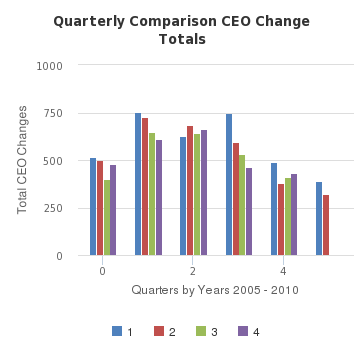
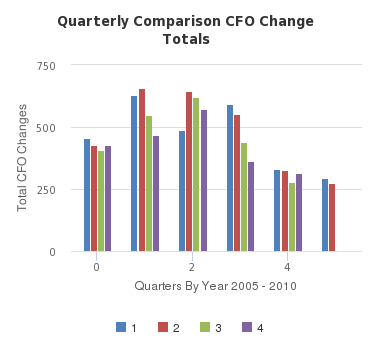
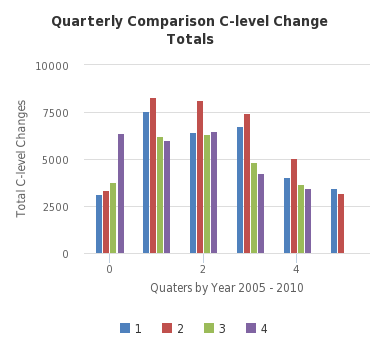
 . Swisher is by no means in the camp seriously worried about the firm’s immediate future but she suggests there is a real need for some change at the firm. According to Swisher,
. Swisher is by no means in the camp seriously worried about the firm’s immediate future but she suggests there is a real need for some change at the firm. According to Swisher, d about bringing Bill Gates back. While it is hard to believe Ballmer is really at risk, maybe he should be. Just today, Adam Lashinsky, the Senior Editor for
d about bringing Bill Gates back. While it is hard to believe Ballmer is really at risk, maybe he should be. Just today, Adam Lashinsky, the Senior Editor for  He (Ballmer) is presiding over the umpteenth reorganization of the company he has run for years, having succeeded his pal, Bill Gates. His online business, whose Bing search engine is making modest gains against industry leader Google, lost more than $700 million last quarter.
He (Ballmer) is presiding over the umpteenth reorganization of the company he has run for years, having succeeded his pal, Bill Gates. His online business, whose Bing search engine is making modest gains against industry leader Google, lost more than $700 million last quarter.






 e worldwide had his retirement not been announced. That new responsibility for sheparding the drug will now pass to Bradway.
e worldwide had his retirement not been announced. That new responsibility for sheparding the drug will now pass to Bradway.
 of time. Noski, an outsider to the bank, is highly qualified. According to
of time. Noski, an outsider to the bank, is highly qualified. According to 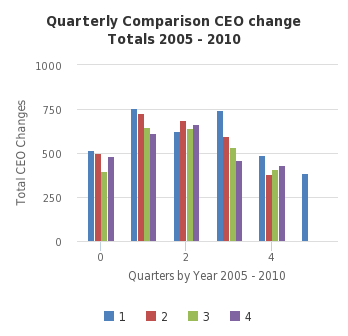
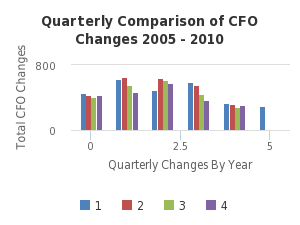
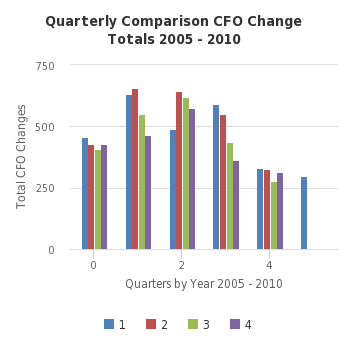
 the CEO of the Whitbread PLC , the hotel and restaurant group. While McCall leaves one troubled industry for another in which she has no experience, the selection still has merit. According to a story by Robert Lea and Susan Thompson in the
the CEO of the Whitbread PLC , the hotel and restaurant group. While McCall leaves one troubled industry for another in which she has no experience, the selection still has merit. According to a story by Robert Lea and Susan Thompson in the  pany put in place a new chairman, Sir Michael Rake chairman of BT Group PLC and CFO, Chris Kennedy an EMI executive. All the management changes have taken place after one of the company’s major shareholders and its founder, Sir Stelios Haji-Ioannou, expressed his objections to the company’s aggressive plans for expansion at the expense of dividends. McCall is expected to toe the line with regard to the founder’s needs. She also appears to be a very interesting choice. Stay tuned
pany put in place a new chairman, Sir Michael Rake chairman of BT Group PLC and CFO, Chris Kennedy an EMI executive. All the management changes have taken place after one of the company’s major shareholders and its founder, Sir Stelios Haji-Ioannou, expressed his objections to the company’s aggressive plans for expansion at the expense of dividends. McCall is expected to toe the line with regard to the founder’s needs. She also appears to be a very interesting choice. Stay tuned







